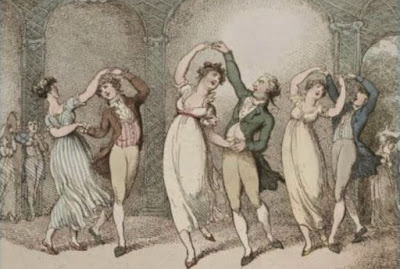Answer TWO of the following:
Q1: When Elizabeth visits
Pemberley with her aunt and uncle, she quickly comes to the realization that
“She had never seen a place for which nature had done more, or where natural
beauty had been so little counteracted by an awkward taste. They were all of
them warm in their admiration; and at that moment she felt, that to be mistress
of Pemberley might be something!” (227). What does she see her specifically
that makes her go into such rhapsodies? Why might this also be the beginning of
her love for Darcy, even if the seed was planted much earlier?
Q2: Since Pride and Prejudice is very much a novel of
class, and class distinctions are read in every gesture, conversation, and
action, how does Darcy signal his ‘transformation’ through his class behavior
alone at Pemberley? Besides simply being nicer, how does Elizabeth (and the
Gardners) read his intentions through what he says and how he acts? Why might
this have been unthinkable from him in Chapter 1? And why does Elizabeth
still not expect him to act this way?
Q3: What role do letters play in the novel? From Volume II
on, there are several important letters, notably Darcy's letter to Elizabeth,
but also the letter from Elizabeth's
Aunt Gardner, as well as other communications from London:
undoubtedly, these are probably hold-overs from the first draft of the novel
(which was a novel in letters). Why do you think Austen retained them in the
novel? What is the significance of reading a character's letters rather than
hearing them speak directly to another character?
Q4: Why does Wickham run off with Lydia
knowing what he knows about the Bennet family? Similarly, why does Lydia
agree to run off with him, since he, too, has no money or fortune? What does
the family hope for that turns out not to be true?

No comments:
Post a Comment